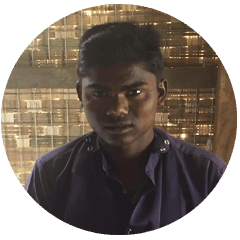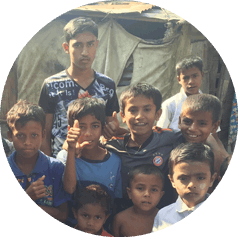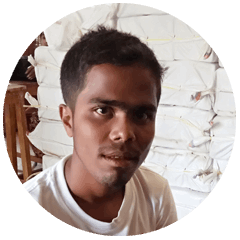In Rakhine State, 140,000 people were displaced during the outburst of 2012 and, to this day, still live in camps where their movement is highly limited. Restrictions on their freedom of movement have negatively impacted access to healthcare, education and livelihood opportunities.
GOING TO SCHOOL IN CAMPS
Hamitoo Saung, Har Shim and Aung Lay live in Da Pheing and Ah Nauk Ye camps, in Rakhine State. Their biggest dream is to be able to study and have a future.

Hamitoo Saung comes from Pauktaw Town; he was only 8 when he arrived in Ah Nauk Ye camp in 2012. His parents do not earn any income because there are no job opportunities in the camp: “We depend on aid provided by NGOs. They give us food rations once a month, hygiene kits, etc.” his parents say.
Now 14, Hamitoo Saung is not going to school anymore, as there are only primary schools in the camp. Moreover, he can’t go anywhere outside the camp. “I liked school and I would like to go back. I stopped going because I did not have a choice, but I would really like a middle school to open in the camp. I could keep on learning and hopefully go to high school one day”.

Har Shim is 16 years old and arrived in Da Pheing camp during the 2012 conflict when he was only 10. In Da Pheing, there are more education facilities. Har Shim told our teams that he is really glad to go to school: “I go in the morning, from Monday to Friday. In the afternoon I go to tuition classes and then I study at home. I enjoy studying a lot.”
However, he does not know what he will do after he finishes school. “My biggest dream would be to go to the university, find a good job and travel abroad. I hope one day I will work for an international NGO such as SOLIDARITÉS INTERNATIONAL.”

Aung Lay is 21. He has been living in Thet Kay Phyin camp with his family for 6 years now: “6 months before the conflict started I had started to learn English. My biggest wish was to speak a foreign language. Since then, I have been studying by myself, so I could find a good job one day.
My biggest hope is to go to university. I would like to save money for the future and one day, go to Yangon to study and learn whatever I can. The biggest problem here is that we can’t move and leave the camps, and we seriously lack education.”
Myanmar
Context and action- 54.4 million inhabitants
- 149th out of 191 countries on the Human Development Index
- 178.000 people helped
To alleviate the suffering of the thousands of internally displaced people living in camps or welcomed by host communities in Rakhine State, SOLIDARITÉS INTERNATIONAL provides them with access to drinking water, sanitation infrastructure, and knowledge on hygiene practices to avoid diseases. Our teams also try to enhance the links between communities in order for them to live in peace together. Finally, our teams run many activities to help people in the camps recover an activity, enabling them to ensure a better future for their families.
These actions have been made possible with the support of ECHO, OFDA, Unicef, Mairie de Paris, The Crisis Centre and DFID.
